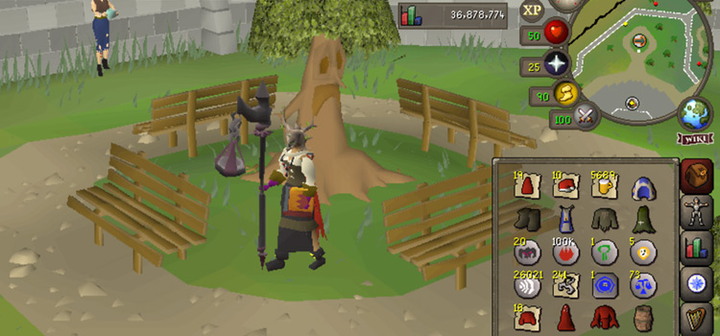Theme Color Chooser
Choose a test user to login and take a site tour.
-
 New Facebook Clone Theme darkgreen
New Facebook Clone Theme darkgreen -
 New Facebook Clone Theme darkorange
New Facebook Clone Theme darkorange -
 New Facebook Clone Theme darkpink
New Facebook Clone Theme darkpink -
 New Facebook Clone Theme darkred
New Facebook Clone Theme darkred -
 New Facebook Clone Theme darkskyblue
New Facebook Clone Theme darkskyblue -
 New Facebook Clone Theme darkyellow
New Facebook Clone Theme darkyellow -
 New Facebook Clone Theme default
New Facebook Clone Theme default -
 New Facebook Clone Theme green
New Facebook Clone Theme green -
 New Facebook Clone Theme orange
New Facebook Clone Theme orange -
 New Facebook Clone Theme pink
New Facebook Clone Theme pink -
 New Facebook Clone Theme red
New Facebook Clone Theme red -
 New Facebook Clone Theme yellow
New Facebook Clone Theme yellow
Classifieds » Entertainment » RSorder OSRS: Start with Key Quests
Classifieds » Entertainment » RSorder OSRS: Start with Key Quests
RSorder OSRS: Start with Key Quests
About
In Ironman mode, the early game determines whether you thrive or fall behind. With no market to lean on, your priority is building a sustainable system for RuneScape gold acquiring gear, food, experience, and resources.
Start with Key Quests
Early questioning is your best friend. Quests provide crucial experience boosts, unlock new areas, and grant powerful items. Here are a few you should prioritize:
Cook's Assistant – A simple intro quest that introduces you to OSRS's mechanics and cooking system.
Doric's Quest – Grants Mining XP and access to Doric's anvil for smithing.
The Restless Ghost – An easy way to get early Prayer XP.
Imp Catcher – Provides essential runes to kickstart your Magic training.
Rune Mysteries – Unlocks Runecrafting, a core skill for self-sustained magic use.
The Grand Tree – Grants access to the Gnome Stronghold and a nice agility boost.
Lost City – Essential for using the Dragon longsword and entering Zanaris.
Completing these quests early sets up your account with skills, access to important zones, and the infrastructure needed for more difficult challenges ahead.
Create a Sustainable Resource Gathering Loop
You'll be relying on your own skills to acquire everything from logs to armor, so it's crucial to start training resource-gathering skills right away.
Woodcutting & Firemaking
Start with the trees around Lumbridge or Draynor. Logs can be burned for Firemaking or fletched into arrows later on. Train both skills simultaneously for efficiency.
Fishing & Cooking
Food is critical for Ironman accounts. Train Fishing and Cooking together to secure a renewable food supply. Start with shrimp and anchovies, and move toward trout and salmon through fly fishing.
Mining & Smithing
Mine copper and tin to make bronze equipment. Eventually, you'll move on to iron, steel, and mithril. Prioritize early smithing levels so you can craft your own gear instead of relying on monster drops.
Crafting
Gather cowhides from cows near Lumbridge, tan them, and craft leather gear. It's an easy and efficient way to train Crafting while preparing early armor.
Herblore
Herblore is often overlooked early, but becomes crucial for creating potions. After completing the Druidic Ritual, start farming herbs and making potions when possible. Strength and Prayer potions will significantly improve your early combat performance.
Combat: Train Smart, Not Hard
Combat is essential for progression, but early-game monsters can still be dangerous when you have limited food and gear. Start with low-risk targets:
Chickens and Cows – Great for food, bones, and crafting materials.
Goblins – Drop basic gear and coins.
Stronghold of Security – Offers a safe zone for combat training and rewards you with 10,000 coins. It's one of the best early-game activities for Ironmen.
Train Melee, Ranged, and Magic in balance. As an Ironman, flexibility is crucial. Having all three styles leveled will allow you to adapt to different boss mechanics and Slayer tasks later.
Don't Neglect Prayer
Prayer is one of the most important survival tools in OSRS. Protect from Melee, Missiles, and Magic can mean the difference between victory and death.
As an Ironman, you must collect bones manually:
Bury bones from chickens, goblins, and other early mobs.
Upgrade to using a gilded altar in your Player-Owned House or a friend's for better XP rates once you're further along.
Consider using the Ectofuntus for efficient Prayer XP if you're training early but want to save bones.
Skilling: Unlocking Key Utilities
While combat is vital, many quests, gear upgrades, and content require non-combat skills. Here's what to prioritize:
Agility
Start training at the Gnome Stronghold Agility Course. Higher agility lets you use shortcuts, reduces run energy drain, and unlocks key quest paths. Even level 30–40 agility early on will drastically improve your efficiency.
Runecrafting
After completing Rune Mysteries, start crafting air runes and gradually work toward higher-tier runes. While tedious, Runecrafting ensures you never run out of essential spell components.
Thieving
Useful for gathering coins and early resources. Begin at the men's/women's in Lumbridge or Ardougne when unlocked. Fletching
Fletch arrows and bows from the logs you chop. This skill can provide all your early Ranged gear and scales smoothly alongside Woodcutting.
Route Planning: Efficiency Is Everything
Ironman is a marathon, not a sprint. You can save hours of grinding by creating synergistic training loops:
Train Fishing & Cooking at the same location to save time.
Cut trees and burn logs on the spot to level Woodcutting & Firemaking simultaneously.
Kill monsters that drop both bones (Prayer XP) and gear upgrades.
Plan routes that combine Slayer tasks, skilling, and quest locations in one loop.
Having a goal in mind each session—whether it's unlocking Barrows, grinding Slayer, or preparing for a quest—is key to staying efficient.
Look Ahead: Mid-Game Goals to Aim For
While your focus should remain on early game survival, it helps to keep your eyes on key long-term milestones:
Barrows Gear – This is among buy OSRS gold the best mid-game equipment. Once you can handle Barrows runs, you'll become far more combat-capable.

